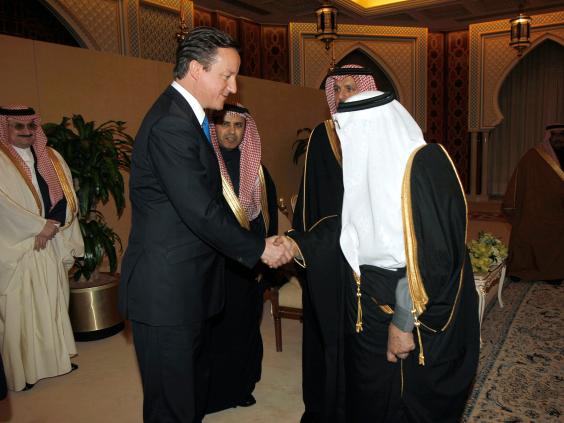“The Saudi Arabian authorities should end their reliance on this cruel and inhuman form of punishment and establish an official moratorium on executions immediately.”
The number of people executed is already higher than at the same point last year, when 158 people were put to death. It was the highest recorded figure in the country since 1995.
Most were beheaded using swords or killed by firing squad, with the bodies sometimes displayed in public after the executions.
Murder and drug trafficking cases account for the majority of executions, although Saudi law also allows for the death penalty for “crimes” including adultery, apostasy, blasphemy, sodomy and sorcery.
A prominent Shia cleric, Sheikh Nimr al-Nimr, was among 47 people killed in a single day in January on “terrorism” charges.
His nephew, Ali al-Nimr – who was arrested along with two others juveniles is currently on death row.
Now 21, Amnesty says he was sentenced to death based on “confessions” allegedly extracted through torture, in a violation of international human rights standards.
He was arrested aged 17 after taking part in anti-government protests and tried by a counter-terrorism court for a series of offences such as attacking security forces and committing armed robbery.
Two other young men, Abdullah al-Zaher and Dawood al-Marhoon were sentenced to death a few months afterwards, on a list of similar offences, and Amnesty International is among the groups calling for the convictions to be quashed.
The British Government said it has “regularly raised” but that under Saudi law they were considered to have been adult at the time of their alleged crimes.
The British Government has been criticised for retaining close relations with Saudi Arabia (Getty)
Reprieve, a legal charity, said juvenile offenders were also among those executed in January, including a man thought to be 14 at the time of his arrest following demonstrations.
The organisation said that if maintained, the current pace could see more than 320 prisoners killed by the end of this year.
Saudi Arabia was among the “human rights priority countries” highlighted by the Foreign and Commonwealth Office in a recentreport, although the British Government has been criticised for its close relationship and lucrative trade deals with the state.
The report said that as the principle of capital punishment is enshrined in Saudi Arabia’s Sharia law, abolition is unlikely in the near future, and that 2015’s rise in executions was partly due to long-running legal cases being concluded.
“We condemn and do not support the death penalty in any circumstances and that includes Saudi Arabia,” David Cameron said in April. “We always make representations on the death penalty.”



